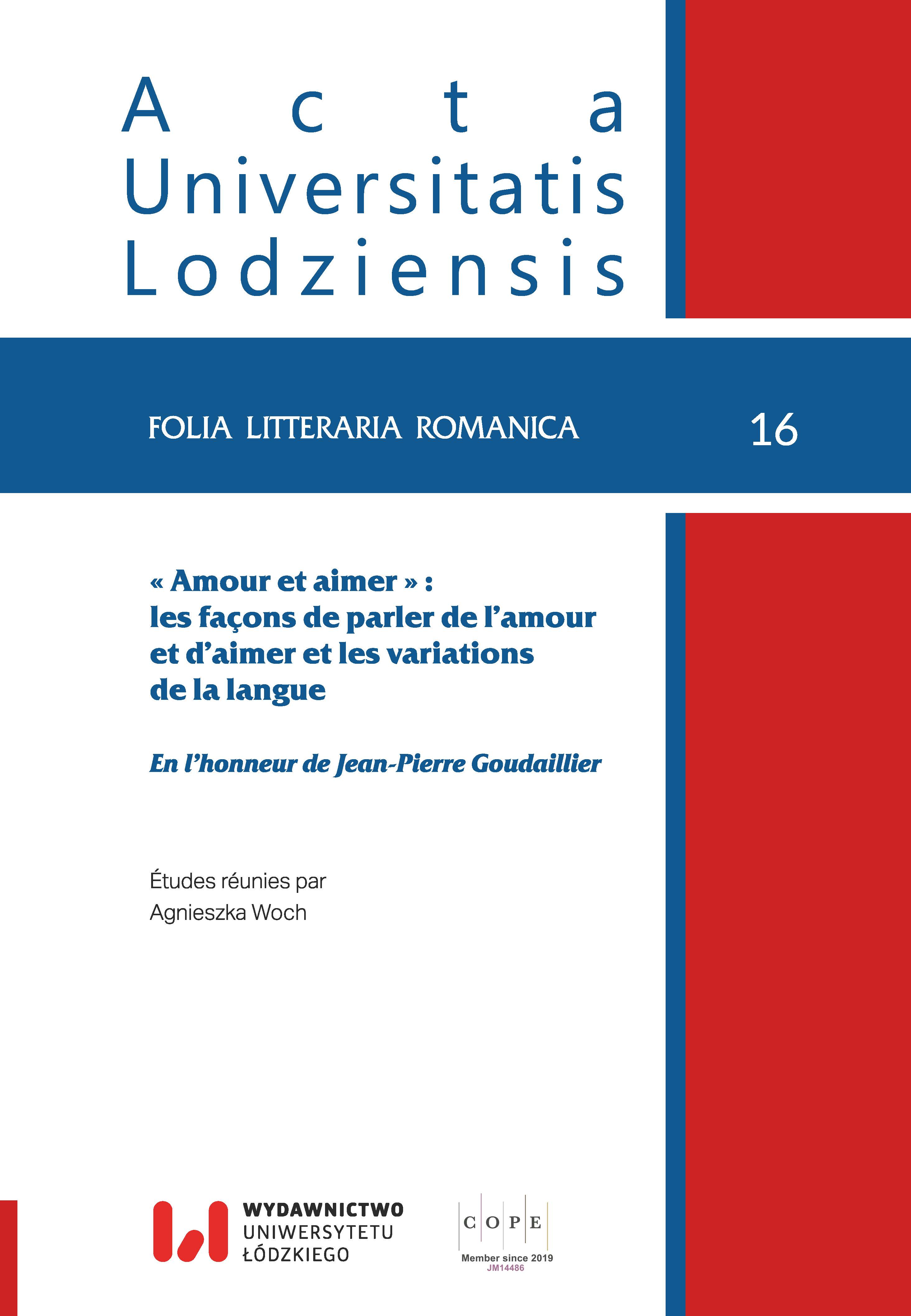The Formation of a Collective Identity Through Expressions of ‘Love’ and ‘Hate’: An Exploratory Analysis of the Discourse of Football Fans in Germany and France
DOI:
https://doi.org/10.18778/1505-9065.16.14Keywords:
collective identity, football, hateful expression, expressions of affiliation, Germany, FranceAbstract
Football is an exemplary platform where the social dynamics within and between societies can be regularly observed. In addition, online message boards are a rich resource of everyday expressions where football fans express their ‘love’ of their clubs as well as their ‘disdain’ for others. We conducted a qualitative content analysis during two seasons of Olympique de Marseille and FC Bayern Munich as well as Toulouse FC and Hannover 96. Our analysis illustrates that hateful expressions that differentiate groups are much more prevalent and therefore more determinant in the formation of a collective identity. Furthermore, the analysis confirms that the self-conception corresponds to the performance of the teams. While fans of top clubs portray themselves in a positive way because of their team’s sporting performance, fans of teams who are battling against relegation define themselves more in a negative way – feeling a form of inferiority – in order to differentiate themselves whilst still remaining attached to their own club as the club motto implies.
Downloads
References
BRAND, Alexander, NIEMANN, Arne (2014), « Football and National Identity in Europe », Panorama: Insights into Asian and European Affairs, vol. 1, p. 43-51
Google Scholar
BRIGEVICH, Anna (2018), « Regional identity and support for integration : An EU-wide comparison of parochialists, inclusive regionalist, and pseudo-exclusivists », European Union Politics, vol. 19, no 4, p. 639-662
Google Scholar
DOI: https://doi.org/10.1177/1465116518793708
BRUBAKER, Rogers, COOPER, Frederick (2000), « Beyond “identity” », Theory and Society, vol. 29, no 1, p. 1-47
Google Scholar
DOI: https://doi.org/10.1023/A:1007068714468
DE COUBERTIN, Pierre (1897), Souvenirs d’Amérique et de Grèce, Paris, Hachette
Google Scholar
DENZIN, Norman K. (1989), The research act, Englewood Cliffs, NJ, Prentice Hall
Google Scholar
GESCHKE, Daniel (2012), « Vorurteile, Differenzierung und Diskriminierung – sozialpsychologische Erklärungsansätze », APuZ, no 16-17, p. 33-37
Google Scholar
KING, Anthony (2000), « Football fandom and post-national identity in the New Europe », British Journal of Sociology, vol. 51, no 3, p. 419-442
Google Scholar
DOI: https://doi.org/10.1080/00071310050131602
MAYRING, Philipp (2016), Einführung in die qualitative Sozialforschung. Eine Anleitung zu qualitativem Denken, 6ème édition révisée, Weinheim / Bâle, Beltz
Google Scholar
ROSCH, Eleanor (1983) « Prototype classification and logical classification : The two systems » in New trends in conceptual representation (E. K. Scholnick éd.), Hillsdale, NJ, Erlbaum, p. 73-86
Google Scholar
TAJFEL, Henry, TURNER, John C. (2004), « The Social Identity Theory of Intergroup Behavior » in Political psychology : Key readings (J. T. Jost, J. Sidanius J. éds), New York, Psychology Press, p. 276-293
Google Scholar
DOI: https://doi.org/10.4324/9780203505984-16
WEBER, Daniel (2018), Bedeutung und Wirkung gruppenbezogener Identifikation. Eine Analyse europäischer und nationaler Identifikation in Deutschland, Wiesbaden, Springer VS
Google Scholar
DOI: https://doi.org/10.1007/978-3-658-20677-2
WEBER, Regina, BRAND, Alexander, NIEMANN, Arne, KOCH, Florian (2020), « Non-elite conceptions of Europe : Europe as reference frame in English football fan discussions ? », Journal of Contemporary European Research, vol. 16, no 3, p. 293-319
Google Scholar
DOI: https://doi.org/10.30950/jcer.v16i3.1089
WENZEL, Michael, MUMMENDEY, Amélie, WALDZUS, Sven (2007), « Superordinate identities and intergroup conflict : The ingroup projection model », European Review of Social Psychology, vol. 18, no 1, p. 331-372
Google Scholar
DOI: https://doi.org/10.1080/10463280701728302
WINANDS, Martin (2015), Interaktionen von Fußballfans. Das Spiel am Rande des Spiels, Wiesbaden, Springer VS
Google Scholar
DOI: https://doi.org/10.1007/978-3-658-09080-7
Downloads
Published
How to Cite
Issue
Section
License

This work is licensed under a Creative Commons Attribution-NonCommercial-NoDerivatives 4.0 International License.













